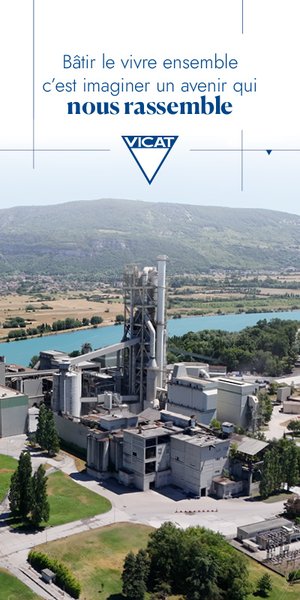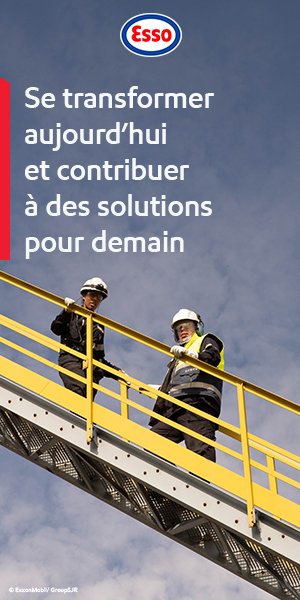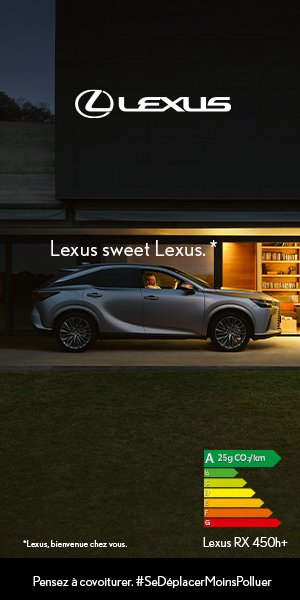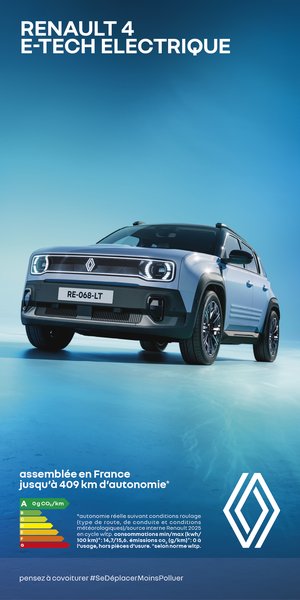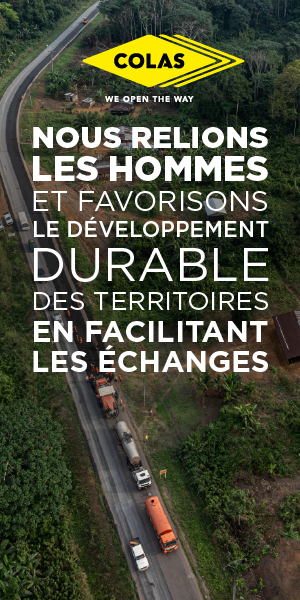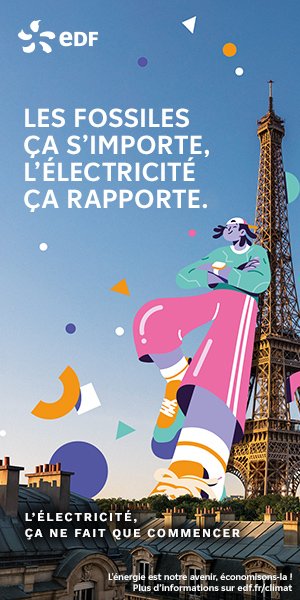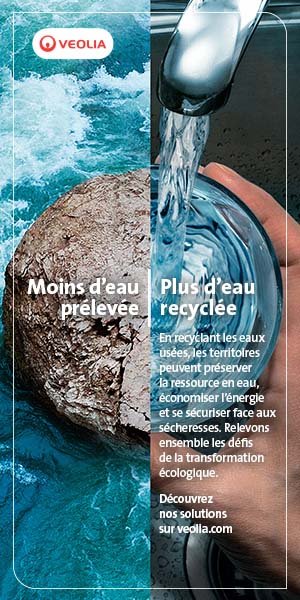Politique Internationale — The first months of 2020 were marked by an unprecedented sanitary crisis. How did a company like EDF adjust to confront this wave?
Jean-Bernard Lévy — EDF is accustomed to managing crises and the company is structured with this in mind. Before the lockdown had even been decided on, we adapted our systems. With the triple aim of protecting the health of our staff, to ensure the security of our installations — in particular, nuclear and hydroelectric power stations — and to maintain the supply of electricity for the country and its inhabitants. These three aims were fulfilled: the supply of energy in particular was never hindered. Faced with an exceptional event, it is capital to be able to respond without failing in this essential mission: to bring current 24 hours out of 24 to the French. We succeeded thanks to the full and unstinting mobilisation of our teams: every morning during the pandemic, 69,900 employees of EDF started the day by connecting to the necessary tools to protect us from the crisis. In such a time, the demands that are made on us immediately become crucial: I am thinking, for example, of incidents that have to be managed in real time. In this context too, all of the branches of the group are involved. EDF is not just a provider of energy, but also an operator of energy services. Our specialised subsidiary Dalkia played its full part in this crisis effort, in particular right inside care institutions.
P. I. — A time like this reminds us, if anyone still doubted it, that EDF is a company that is essential to the life of the country. With for its base a nuclear power plant park that guarantees electricity supplies for the French and which functioned perfectly despite a marked reduction in staff.
J.-B. L. — Our Nuclear Production Division (DPN), 22,500 people in total, is driven, on the one hand, by the duty to ensure that infrastructures vital for the country function and, on the other hand, by an obsession for safety. EDF employees organised themselves during the sanitary crisis to make installations function despite the lockdown. Put in place at the end of January on the scale of the whole EDF group, the coordination cell — which was rapidly transformed into a crisis cell — set out to be permanently in anticipation: no scenario, including the most improbable, could be ruled out. On the management of staff numbers in our power stations, this ability to adapt was illustrated in plain sight: at the start of the lockdown, a first blueprint foresaw functioning with 25 per cent fewer teams for 12 weeks. And to manage the risk of this rising to 40 per cent for two weeks at the height of the epidemic. We are very proud of the way that the plan for continuing our activity, in nuclear and other branches of the company, could be applied.
P. I. — Even if it will affect mentalities for a long time, this sanitary crisis does not eliminate other deep problems, starting with the climate emergency. In addition, many experts have established a link between the pandemic and insufficient protection of the planet. How can electricity, in which EDF is a major player on the world level, back the struggle against global warming?
J.-B. L. — There is first this indisputable fact: the world needs more and more energy. This is a deep-seated tendency, backed by all the economic scenarios — as much those about the short term as forecasts for the long term. To eat, to heat, to move around or even to work, energy is indispensable. New uses, one can think of digital or air conditioning, are energy-consuming. In the workplace, for example, characterised by the boom in digital, equipment and services use more and more; flows of data being both constant and sensitive, nothing can be allowed to interrupt them. From this comes a demand for a high-quality electricity supply.
In all regions combined, we are on a trajectory where economic development, demographic growth and technological progress are going to come together more and more to boost the demand for energy.
But this analysis is worrying: on the environmental level, the planet is today in a high-risk situation. To reconcile the imperatives in the struggle against global warming and the inevitable growth of energy consumption in the world, electricity is inescapable. Solutions exist to de-carbonise its production on a large scale: some sectors are well implanted such as nuclear or hydroelectric power; others are in full expansion such as solar and wind. The addition of these different sources should allow a response to the migration of usage: in transport, electric mobility already offers a real alternative to traditional vehicles whose fuel is of fossil origin. In 2018, EDF launched a strategic plan in this domain: on our four biggest European markets — France, the United Kingdom, Italy and Belgium — we want to be the leading energy provider in 2022. That represents a market of 30 per cent to fuel a total of 600,000 vehicles, through combined offers including the provision of low-carbon electricity, recharging facilities and optimised use of the battery.
P. I. — EDF is permanently in discussion with public authorities, political players and a large number of institutions. Are they on the same page, that of an increased recourse to electricity?
J.-B. L. — The figures no longer leave any room for debate: the curve that is forming — world needs for electricity multiplied by two in the medium term — is now accepted by everyone. In Europe, the aim of carbon neutrality by the target of 2050 meets with almost general consent. On the other hand, the means needed to achieve this objective inspire no consensus. In the transport domain in particular, questions are legion: what future is there for air transport? Can we permit ourselves to criss-cross the planet indefinitely? In the car, will traditional engines still have their place? It’s the same for energy networks: what technologies should be given priority? And how can we combine them with already existing infrastructures? And so on and so forth. We are touching on large parts of our society, all of which have to be revisited in the light of their impact on the climate. Discussions obviously must be encouraged between each and everyone — companies, politicians, NGOs and institutions — but there is a moment when a decision must be taken. In the circumstances, EDF has already taken some firm decisions: our electric mobility strategy is one of them; we also have our solar project whose outlines were defined at the end of 2017. In the 2020-2035 period, EDF’s aim is to develop 30 gigawatts (GW) of solar photovoltaic to add to what is already on offer in France. This programme, of an unprecedented sweep, is one of the pillars of our Cap 2030 strategy which aims to double the group’s renewable capabilities by 2030.
P. I. — In the field of electricity, are technological upheavals expected? We can see a swarm of initiatives. Should we hold fire and concentrate the efforts around a few angles in particular?
J.-B. L. — The first upheaval is in our heads. This consists of becoming aware of the importance of energy sobriety. For too long, the world has behaved as though there was no limit to energy consumption, wherever the energy comes from. That has well and truly come to an end: if we don’t offer de-carbonised solutions in response to the growing rise in demand for electricity, then we are heading for catastrophe in the sense that the struggle against global warming will fail. Mastering consumption is this first indispensable upheaval. On the technological level, the innovations are effectively plentiful: electric mobility is one, as is the largescale development of renewable energies, the range of energy services or even hydrogen. So should we make choices? I do not believe in too great a creation of a hierarchy; the climate emergency is too important not to pull out all the stops. In some fields like renewable energies or electric cars, developments have already reached an industrial scale; in others, such as hydrogen, we are still at the stage of creating a sector. The example of de-carbonised hydrogen — produced from de-carbonised electricity and no longer from a fossil source — illustrates amply EDF’s desire to position itself in advance and to encourage the different players, including the European Union and the authorities, to back an important solution towards reaching carbon neutrality in 2050. Created in 2019, our Hynamics subsidiary produces and already commercialises low-carbon hydrogen. Backing an emerging sector on the one hand and the launching of operational projects on the other, EDF always follows these two tracks when it comes to seeking out new solutions.
P. I. — EDF’s nuclear competence has been recognised for a long time in the whole world. In the framework of its work, the Intergovernmental Panel on Climate Change has recalled that developing the atom was indispensable to meeting the objectives of the struggle against global warming. However, in many countries, strong reservations continue to show up in regard to this industry. What is your view?
J.-B. L. — In matters nuclear, any generalisation is excessive. In the two huge countries that are China and India, not only are there no reservations, but a real industrial dynamic in nuclear power has been engaged in the service of de-carbonisation. Confronted with a triple challenge — meeting a very strong demand for electricity, improving the quality of air and struggling against the warming of the planet — their respective governments have launched nuclear programmes of a huge size. In China, EDF is directly associated. The two new-generation reactors in Taishan were put on line within the framework of a close collaboration with the electricity-producer China General Nuclear (CGN), our partner for the past 30 years. In India, our ambition is in the medium term to set up a fleet of six EPRs. In Europe, unlike in Asia, I hear it said that nuclear power encounters strong opposition. This is false: in all of eastern Europe, concrete projects are under study. Poland, in particular, is on the lookout: permanently stigmatised for its high level of production of electricity from coal, this choice would open up the prospect of a de-carbonisation of its energy mix. The reservations that you mention are concentrated mainly in western Europe. Despite this, the construction of new reactors is advanced in France, Finland and Britain. At Flamanville, in the Manche department, the commissioning of the prototype is taking more time than forecast, but it is precisely for that reason that EDF is already working on an EPR 2, an optimised EPR that incorporates the feedback both from the French site and from Taishan 1 and 2. This EPR 2 is the one that will serve as the anchor point for the fleet of reactors earmarked to take over from current power stations. These prospects are dealt with in a very operational way in the Multiannual Energy Programming (PPE), the authorities’ roadmap for 2018-2028: nuclear power is an industry that projects itself into the long term.
P. I. — For a long time, there has been a lively debate over the price of electricity. In a more and more de-carbonised world, do we have to get used to paying more for electricity? On the basis that de-carbonised electricity is more costly to produce, with in the background the system of subsidies for renewable energies…
J.-B. L. — The fact of being able to rely on the nuclear park shields the consumer from wide variations in the price of electricity. In France, the law stipulates that EDF’s supply costs should be entirely passed on in the bills: this arrangement implies that the progression of market prices should be taken into account but, unlike sources such as coal or gas, whose prices are much more volatile, nuclear power is a factor for price stabilisation. We should not conceal either the weight of taxes: today, they represent one third of the bill. Should we continue to tax as much a de-carbonised means such as electricity in the same way as fossil fuel? The subject must be put on the table. We also count on our technological investments to bring down the bill: in solar or offshore windfarms, but also in digital tools. Thanks to artificial intelligence, we can understand our consumption better and we can manage it better, which often allows us to make substantial economies.
* CEO of EDF.
